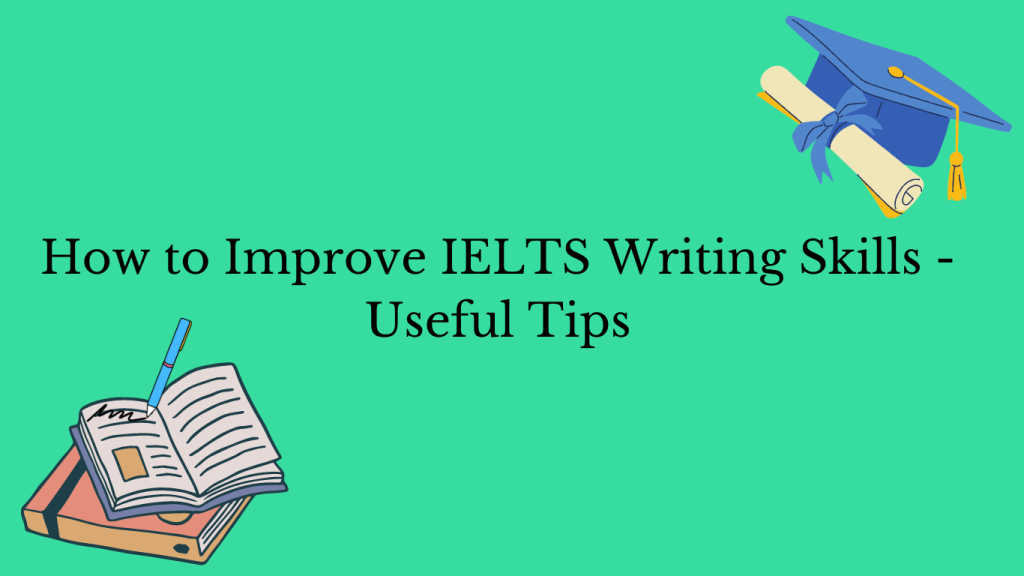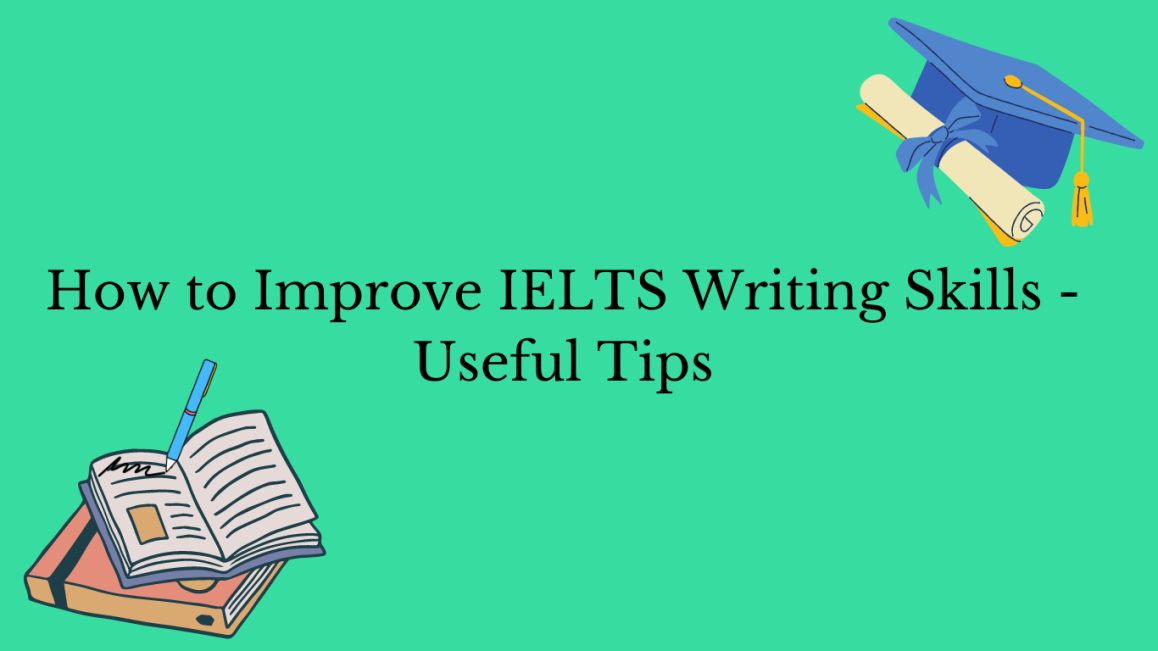
The IELTS exam is known for being challenging. According to an online source, the success rate for this test is just around 50%.
Among the different sections of the test, many students are more concerned with the writing part of the test. It is a timed portion and requires you to write top-quality work while staying within the time limit.
In this article, we are going to list some useful tips to help you ace this language test.
5 Useful Tips to Improve IELTS Writing Skills
1. Improve Your Comprehension Skills
While giving the IELTS test, you will need to read and understand the instructions in quite a few instances throughout the writing section.
One example of this is that you should be able to understand which type of topic you are given to write about. There are different types of topics that can be given to you, and you have to adopt a specific tone for each one of them.
A few types of essays that you might come across are given in the following.
- Opinion essays
- Discussion essays
- Comparison or Advantage/Disadvantage essays
All of these require different writing styles.
For example, if you are given an essay in which you are asked to give an opinion on a certain matter, you should stick to your views on that matter and not talk about counter-opinions. However, there might be cases when you are asked to write about the benefits and drawbacks of something. This type of essay needs to be vast and cover all the aspects of the topic and not just your opinion.
2. Improve Your Vocabulary
A well-chosen word can make a huge difference. You need to surprise the checker by giving off the impression that your vocabulary is top-notch. There is a lot of study material that you can get online to improve your vocabulary.
Similarly, you can try practicing by regularly writing about random topics of your choice. Once you have a draft ready, you can look for words that are not very impressive and search for their synonyms by searching them online on Thesaurus (an online book that lists synonyms of words).
Another approach that could be used for learning synonyms is by taking assistance from online tools to paraphrase the content. You can paraphrase online your draft with these tools to get results in which words get replaced with their synonyms, and most of the time, these synonyms are a better pick as compared to the original word.
In this way, you can learn new words, and the next time you write about something, you can use these new words. Repeating this process until the test day is a good idea so that your collection of words keeps getting updated.
3. Know the Correct Spellings of Words
Spelling mistakes are completely off the charts. You have to make sure that whatever you write in your test is spelled correctly. A spelling error can greatly impact the checker’s decision to give you a score.
If you evaluate any sample paper of an IELTS writing task, you will see that there is no spelling mistake of any sort. Every word would be written accurately.
So, how can you improve your spelling skills? Well, the simple answer is to practice as much as possible. And to be quite frank, this is actually the best approach there is to get your spelling right.
Now, you might be wondering how you can identify a spelling mistake while practicing. The simple solution is to use online grammar-checking tools. These tools automatically proofread your work, highlight grammatical errors in it, and provide the best suggestions to correct them.
4. Learn How to Structure Sentences
Your sentences need to cover a wide range of sentence structures. A few types of sentences are explained in the following.
- Simple: A sentence that consists of only one independent clause.
- Compound: A sentence that has two independent clauses joined together with a coordinating conjunction such as and, so, but, etc.
- Complex: A sentence that has one independent clause and one or more respective dependent clauses.
Your writing task should be a mix of all these sentences, as this will indicate your grip on the grammar aspect of the language.
Still, it is suggested that the use of simple sentences should be minimized. However, make sure that you don’t jumble up your sentences so much that they become unreadable. You should use a semi-formal tone instead of highly complex sentences.
Here is an example that explains what we are talking about.
Don’t: “I have an opinion on this matter which is, to be honest, not very common as the vast majority might disagree.”
Do: “My opinion on the matter is rather unpopular as the vast majority might think otherwise.”
In the don’t section, the sentence used is overly complicated and is risky to use in an IELTS test. A better and rephrased version has been given in the do section.
Now that the instructions about the type of sentences to use in the IELTS writing portion are out of the way let’s talk about how you can learn to write these sentences.
During your preparation, set aside a specific time to learn about structuring sentences. First, you should get a little familiar with a few technical aspects, such as grammatical terms. After that, you can try reading books or online posts that interest you.
Reading will help you understand and write these sentences naturally without thinking about the technical details.
5. Try to Write Concisely
Additional or unnecessary information will not be appreciated by your checker. The writing tasks of IELTS require you to be concise and to the point. Be straightforward in your sentences and use a tone that makes you sound sure about what you are writing.
Another thing to keep in mind is that you shouldn’t write extensive paragraphs. They can throw off the checker, and he might skip some parts of your work that were valuable to your point.
Segment your essay into distinct sections explaining all the different aspects of your topic. In this way, you give your work a nice flow that facilitates the reader.
Conclusion
IELTS writing is, without a doubt, a challenging section of the test, but it can be tackled if you follow the strategies explained above. The summary of these strategies is that you need to practice as much as possible, and while writing, you need to find a balance between complex and simple terms.
You cannot overcomplicate your writing, and at the same time, you can’t use overly simple sentences or words. Something in between these two extremes will give the best results, and you will be bound to get above 6 bands.

